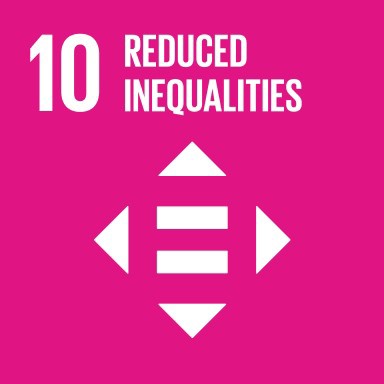17 Days of AI for Good — SDG 10— REDUCED INEQUALITIES
“ Human augmentation using AI-inspired devices both internally and externally provides super senses and knowledge, enhanced physical capabilities, and corrects disabilities yielding a more equal and inclusive society.” — AI XPRIZE
My Take
So this is a hard one. How can AI reduce global and societal inequality?The XPRIZE team focussed on disabilities and personal inequality which is great, but the SDG description is even more ambitious. They hope for nothing less than bridging the gap between rich and poor, powerful and powerless within each society and between nations themselves. Trying to understand this better I came across the fantastic ITU AI Repository. This is a tool the ITU built up after last year’s AI for Good Summit to cross link organizations, projects and initiative using AI to make progress on some, or all, of the SDGs.

If we take a look at the current entries for SDG 10 we can see fewer than for other SDGs indicating this might indeed be a harder goal to help with. But we also see exciting and creative ideas for how AI could be brought to bear on reducing inequality. Some of the projects include using AI to simplify and automate legal advice for the disenfranchised and for more intelligent credit risk analysis to favour micro-loans in poor economies. One other thing that comes to mind for me is language itself. Improvements in automated translation and access to tools for translating documents, textbooks, legal frameworks. All of these could be transformative for societies without the educational infrastructure to learn the languages that the rich economies operate under. Levelling the language playing field would allow the potential of any society to flourish and interact more equally with the world.
What do you think?
Do you have any ideas? How can Artificial Intelligence be used to reduce structural barriers to equality between people and between nations?
Each day up until the AI for Good Summit in Geneva on May 15 I’m writing up a thought on how Artificial Intelligence could impact on each UN Sustainable Development Goal. (Go to the first post.)
Mark Crowley has no official affiliation with IBM, XPrize, ITU or the UN. The views and opinions expressed here are entirely his own.
